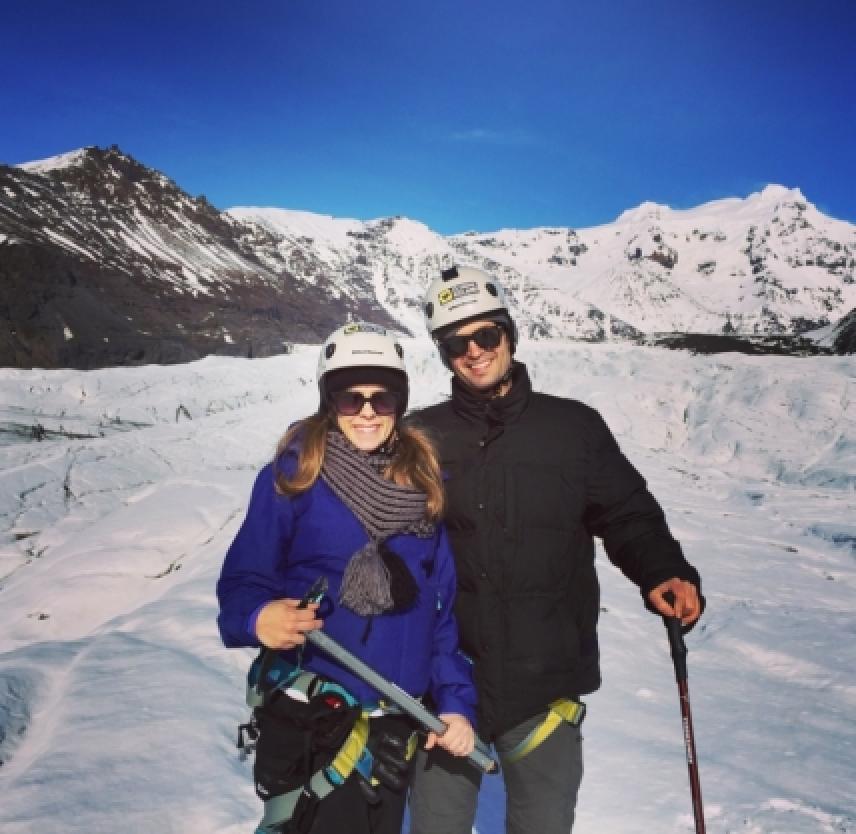
In my role as a TBI advocate, I’ve been honored to listen to the stories of many brain injury survivors. Just as no two injuries are ever alike, nor are two survival tales. I’ve met survivors of bike accidents, car accidents, falls, aneurysms, strokes, and victims of crime. I’ve met people who have lived through the tough consequences of brain injury: long hospitalizations, broken marriages, bankruptcies, abuse, mental health crises, and more. Although these stories sometimes contain a silver lining or two, almost every tale is one of struggle and unimaginable resilience.
I never have the right words for these survivors. Wow, is woefully short. You’ve been through it is an embarrassing understatement. What a story, only scratches the surface of someone’s ordeal. What I really want to say is too long and too personal to convey to a stranger, but it starts with this:
Friend, your life is a testament to the fact that we can do hard things.
You see, I forget this simple fact sometimes. Humans were built to adapt. Just as they were designed to withstand suffering, they were also blessed with the capacity to rise. I’m lucky to live alongside my husband TC, someone whose own life exemplifies the potential of human ability. His journey has illuminated a strange paradox for me: isn’t it strange that in becoming disabled, so many of us prove how very abled we are?
Not only can we do hard things in life; we must do hard things. Whether you are facing your struggle as a survivor, a caregiver, or a family member, there will come a time when you are called to rise. For TC, overcoming hard things has meant tackling both the physical and the emotional. First, it was learning how to breathe again without the help of a respirator. Then it was learning how to swallow, talk, dress, walk, and even return to work again. It was also about conquering emotional demons: warding off PTSD, depression, and coping with a crippling loss of identity. In the past four years, TC has done countless hard things. Sometimes he falls into bed at night exhausted, recognizing that the work will never be done.
As a caregiver, one of my ongoing hard things is to simply tell the truth: to risk nagging or interfering when I’m worried about my husband, to inform our friends and family about what’s going on, and to ask for help when I can no longer walk the road alone. It seems like such a small thing, but before brain injury, I had no idea how hard it is to ask for help. Now I understand it to be one of the greatest acts of courage.
Too often we fail to give ourselves credit where credit is due, but our own life histories are proof of our resilience. After all, the best predictor for how we’ll handle future challenges is to examine how we handled challenges in the past. Did we quit when the going got tough? Or did we stick it out?
I couldn’t have possibly predicted the way TC’s recovery would go, but the fact that he had already overcome so much in pre-TBI life gave me hope. And as I continue to meet challenges in my own life, my history as a caregiver serves as a reminder that I am tougher than I think. Brain injury has been a type of boot camp for our family, a crash course in thickening our skins and tackling struggle head-on. And although none of us signed up for it willingly, I think we can all agree it’s been strenuous and valuable preparation for whatever challenges lie ahead.
Our brain injury community is a community of fighters. We find ourselves here because we’ve already claimed victory over something hard. While I sometimes fail to find words that acknowledge the magnitude of this injury, I have such great admiration for those I’ve met along the way. Where you may see your lives as imperfect or unfair, I see the awe-inspiring work of warriors
Brain injury will not be the last hard thing we encounter on our journeys, but if we take comfort in the lessons we’ve learned about ourselves and carry those lessons forward, we will be well prepared to rise again. We can do hard things, my friends. Your lives are the proof.

Comments (5)
Please remember, we are not able to give medical or legal advice. If you have medical concerns, please consult your doctor. All posted comments are the views and opinions of the poster only.
Anonymous replied on Permalink
"We Can Do Hard Things".... yes we can! Feeling inspired:) —Thank you from mom of 19 yr. old TBI survivor... still healing still workin' hard.
Anonymous replied on Permalink
This is exactly what i needed right now. I am the mother of a 36 yo daughter with a tbi. Your take on life is inspiring and real. Thank you from the bottom of my heart!!!!!
Anonymous replied on Permalink
As the Mom of a son who survived a TBI and a cerebellar stroke, I read this through tears, nodding in agreement the whole time. Thank you for beautifully verbalizing the long journey that is brain injury recovery.
Anonymous replied on Permalink
This is beautiful. Thank you.
Anonymous replied on Permalink
I took one sentence out of your article: "I see the awe-inspiring work of warriors". It is that singular sentence that I believe that all TBI survivors and their caregivers have it within them to share their stories, for those stories and medical information will benefit the future Neurosurgeons and doctors and nurses. It will help them better understand the brain and how it functions. It will help everyone for future generations to come. Thank you all for sharing your stories.